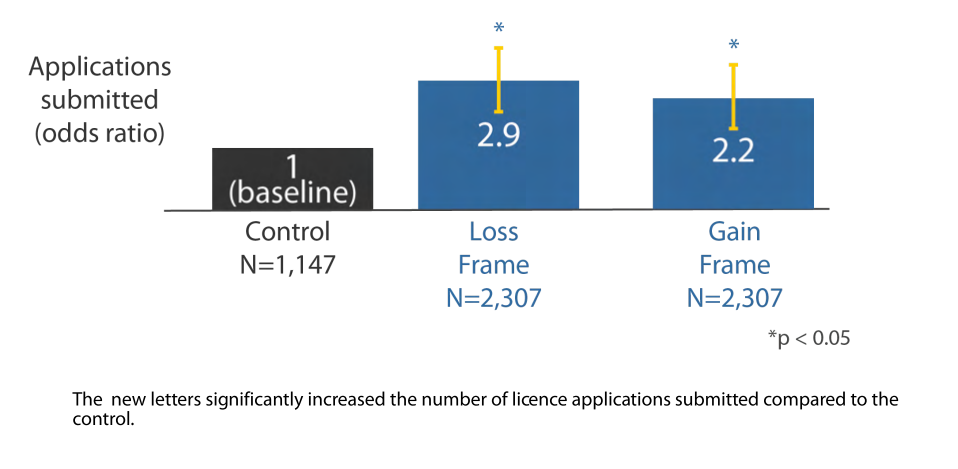In November 2021, BC Behavioural Insights Group (BC BIG) released The First Four Years, a report of the first years of our work. We included case studies of some of the projects we’ve done around the province, including designing better maps to protect mountain caribou, helping British Columbians unemployed due to the pandemic return to work, and improving the management of groundwater in the province.
Over a series of blog posts, we will shine a spotlight on individual projects and invite your questions.
CASE STUDY SUMMARY
In B.C., businesses using groundwater must apply for licenses to help ensure fair and transparent use of water, including during shortages. Following research with business owners and ServiceBC frontline staff, BC BIG found that many groundwater users were unaware of both the requirement to license and how to apply. After testing two new behaviourally informed letters, we found that both letters more than doubled the rate at which people opened and submitted license applications, compared to no letter.
THE CHALLENGE
B.C.'s Water Sustainability Act requires nondomestic users to license their groundwater use. When the Act came into force in 2016, existing groundwater users were required to apply for a license within a defined timeframe. Groundwater licensing ensures there is a fair and transparent process in place for determining who uses the water, including during water shortages. Existing users who do not apply for a licence before the deadline may lose access to groundwater and could be fined. We focused on how to encourage applications from rural business owners who use groundwater.
THE APPROACH
We worked with the BC Public Service’s Service Design Team to interview over 50 rural business owners and frontline staff to identify barriers to groundwater licensing. The research found that many businesses did not know they needed a licence and did not know how to apply. We designed two different versions of a letter that was mailed to business owners to notify them of their legal responsibility to apply for a groundwater licence and to inform them of the process.
THE RESULTS
We randomly assigned “gain”- and “loss”-framed letters to rural business owners who use groundwater in B.C. Another smaller sample of business owners received no letter. The new BI letters more than doubled the rate at which people opened and submitted licence applications. We found no evidence of a significant difference between the gain- and loss-framed letters. This simple, inexpensive paper letter encouraged rural business owners to complete an online licence application.
BEHAVIOURAL INSIGHTS USED
PERSONALIZATION
To ensure businesses recognized that the notice was intended for them, we included the recipient’s name, property type, and their parcel ID number in the new letters.
GAIN FRAMING
To encourage applications, we created one version of the letter emphasizing the rights and legal protections gained by having a licence.
LOSS FRAMING
To discourage inaction, we created another letter emphasizing the penalties and costs of not applying for a licence.
Learn more about groundwater licensing
Behaviourally informed letters using gain- and loss-framing helped keep British Columbia’s groundwater properly licensed. How have you used gain- or loss-framing? Let us know in the comments.


